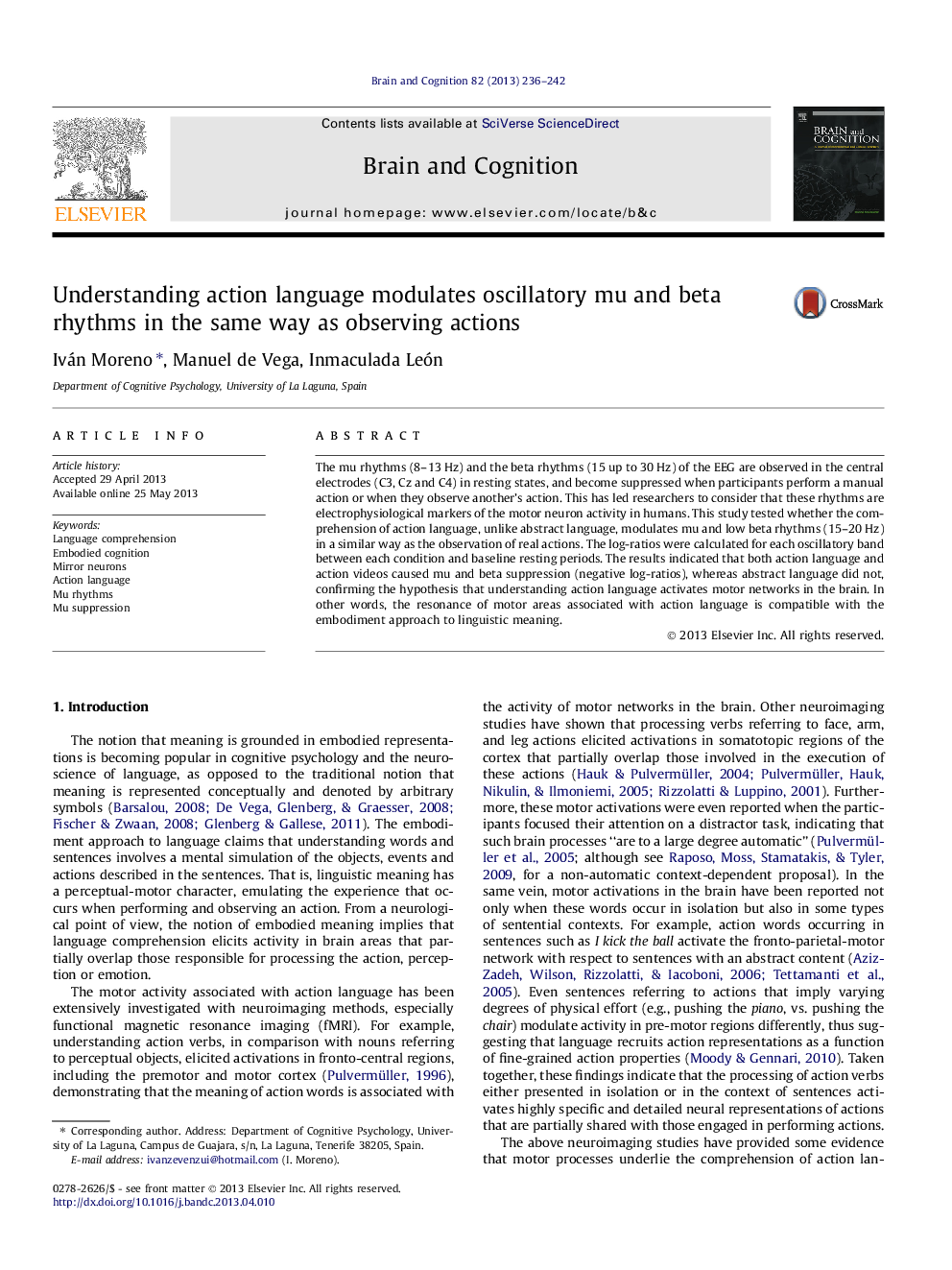| Article ID | Journal | Published Year | Pages | File Type |
|---|---|---|---|---|
| 924569 | Brain and Cognition | 2013 | 7 Pages |
•Mu and beta rhythms are suppressed when participants observe another’s action.•This study tested whether action language also modulates mu and beta rhythms.•The results indicated that action language caused mu and beta suppression.•This suggests that action language activates motor neurons.
The mu rhythms (8–13 Hz) and the beta rhythms (15 up to 30 Hz) of the EEG are observed in the central electrodes (C3, Cz and C4) in resting states, and become suppressed when participants perform a manual action or when they observe another’s action. This has led researchers to consider that these rhythms are electrophysiological markers of the motor neuron activity in humans. This study tested whether the comprehension of action language, unlike abstract language, modulates mu and low beta rhythms (15–20 Hz) in a similar way as the observation of real actions. The log-ratios were calculated for each oscillatory band between each condition and baseline resting periods. The results indicated that both action language and action videos caused mu and beta suppression (negative log-ratios), whereas abstract language did not, confirming the hypothesis that understanding action language activates motor networks in the brain. In other words, the resonance of motor areas associated with action language is compatible with the embodiment approach to linguistic meaning.
